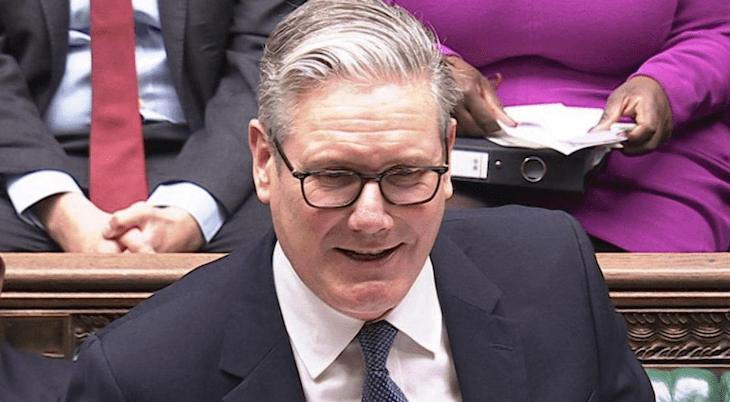As Emmanuel Macron heads into a fraught election, France’s president is repeatedly warning voters of the calamitous consequences of electing Marine Le Pen’s National Rally into government. In doing so, he is effectively weaponising the bond market. His allies point to what unfolded under Liz Truss’s government. The message to voters is clear: don’t even think about.
The debt crisis is largely of Macron’s own making
Throwing a ‘grenade’ at those considering backing National Rally might be smart politics, but it is very dangerous economics – and the consequences may be catastrophic for the country he leads.
You can hardly blame Macron for panicking: his decision to call a snap general election last week does not appear to be working out very well. Macron’s Renaissance party is trailing in third place, behind the National Rally and a united left-wing Popular Front. Some polls show his party reduced to 50 or 60 MPs, a result that would leave him powerless for the remaining three years of his time in office. To fight back, Renaissance has started arguing that the election of a different party would spark a collapse of confidence. According to the finance minister Bruno Le Marie, France could face ‘a Liz Truss scenario’, while the president himself has spoken of lobbing a grenade at the voters.
There is plenty of truth in the argument. Investors are already scuttling out of France. The spread between German and French debt kept on rising over the weekend, and has now hit its highest level since 2012, at the height of the euro-zone crisis. The Paris stock market has been hammered, with the CAC-40 falling by 6 per cent last week, and losing its place as the largest in Europe to London. It is not hard to work out why. The plans of both the National Rally and the Popular Front are hugely expensive, extending already generous welfare benefits, lowering the retirement age, and putting up protectionist trade barriers. Given that France’s debt rating has already been cut twice in the last six months, and it owes more money than any country apart from Japan and the United States, its credit is looking less and less stable all the time.
Yet there are two big problems with the warning of a Truss-style collapse unfolding in France.
First, the debt crisis is largely of Macron’s own making. While the president has made some worthwhile reforms, he has also spent lavishly, pushing the debt to GDP ratio from 98 per cent to 112 per cent and presiding over huge budget deficits. With a growth rate of just 0.2 per cent this year, he has little to show for all the extra cash he has splurged.
Next, all his government is doing is drawing attention to how precarious France’s position has become. As a former banker, Macron should know that once a capital flight starts it is very hard to stop, and right now money is draining out of the country. Weaponising the bond market may well help shore up flagging support at the polls, and prevent a few voters taking a chance on Le Pen. But it is very a big risk – and it makes the risk of a full-blown collapse far higher.







Comments